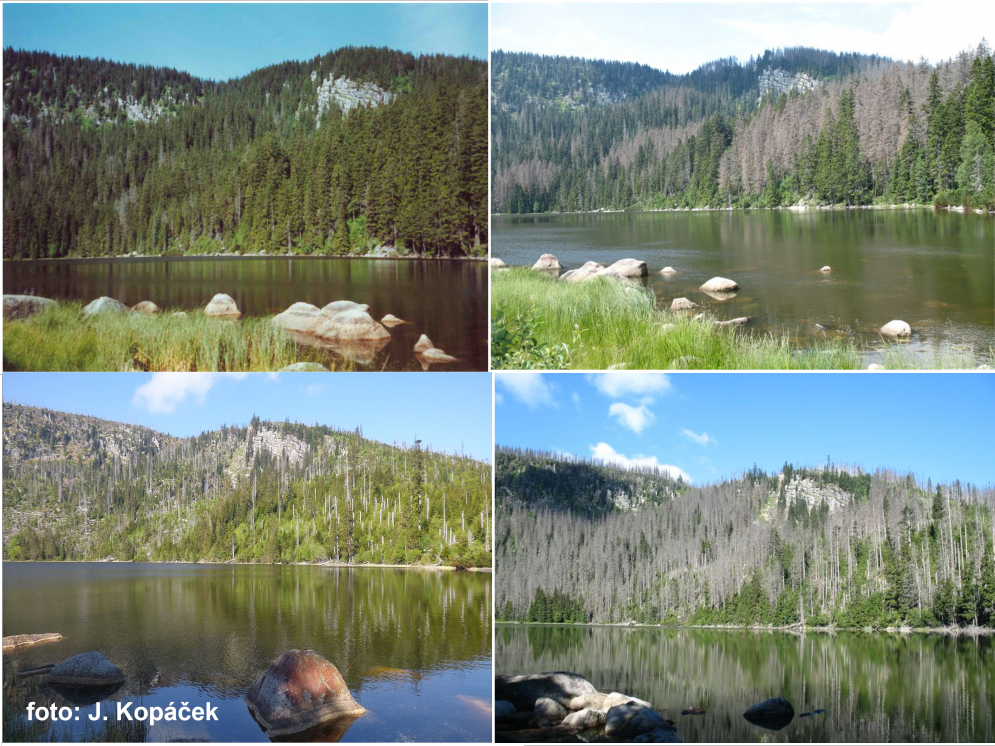Effect of nitrogen availability and forest status on soil microbiome, nutrient cycling, and biological recovery of acidified waters in mountain ecosystems
Principal investigator: Jiří Kopáček
(Co)investigator from the Department: Karolina Tahovská
Funding provider: Czech Science Foundation
Duration: 2022 to 2024
Project goals:
To evaluate links among (1) climate, soil properties, and spruce forest regeneration after disturbances in mountain catchments; (2) forest re-grow, soil microbiome composition and function, and element leaching; and (3) seasonality of water chemistry and biological recovery from acidification.
Project description:
The dominant Norway spruce vegetation was to different extents disturbed by bark beetle infestation in the unmanaged Bohemian Forest (BF) catchments during the last two decades. All dead tree biomass remained on site and stands began to regenerate naturally, providing wide gradients of vegetation, soil properties, and surface water composition within individual catchments, as well as among them. We propose an integrated study in the BF catchment-lake systems on effects of natural forest regeneration on chemical and microbial soil composition and function, element (primarily N) cycles and leaching, and recovery of receiving waters from acidification. We plan to evaluate (1) effects of gradual decomposition of dead biomass on a cascade of compositional and functional changes in soil microbial communities, and element availability and leaching; (2) how their fluctuations are affected by density of regenerating trees and their growth rates (both related to microclimate conditions); and (3) how seasonality of post-disturbance element leaching affects biological recovery of waters.
